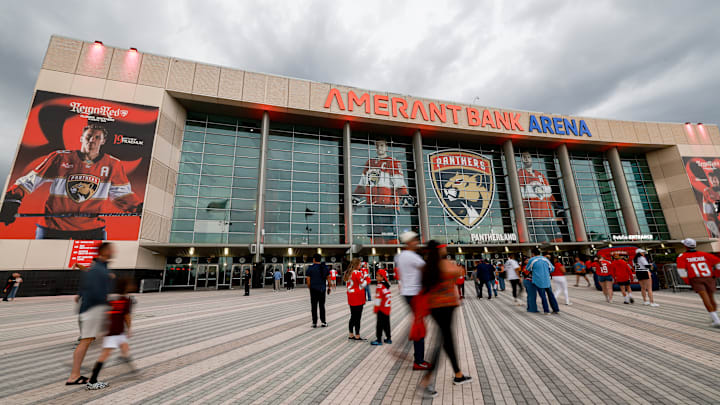"State income tax" has become somewhat of a hot topic over the past few months as NHL fans and media debate whether the lcoation of a team plays a big role in player signings, but the first day of free agency has proven those people wrong.
Some of the greatest bargain contracts from day one came from teams that are actually subject to higher taxes. Jake Allen of the New Jersey Devils signed for half of what he was expected to make, and Corey Perry inked a deal with the Los Angeles Kings for under market value.
The Kings were actually the biggest spenders of the day, making five signings. Those who believe the state income tax is a huge factor in a player's decision would be shocked at that statement, as California has the highest income tax in the United States by a longshot, as well as a surcharge for high earners. Meanwhile, New Jersey's tax rate is the fifth-highest in the nation, and Allen could have earned double his contract elsewhere.
When it comes to the tax conversation, the Florida Panthers have been at the center of the debate because they're playing in a state with no income tax -- and they just so happened to win back-to-back Stanley Cups. It had people wondering whether the higher take-home pay is alluring to NHLers, pointing to the team-friendly deals recently signed by Aaron Ekblad and Brad Marchand as evidence.
But even team executives don't see that as an issue. The fact is that the Panthers are the best team in the league right now, and have been building to this point for several seasons. It might be an added bonus for players to avoid extra taxes, but we must also consider that the product on the ice is exciting and something many skaters want to be a part of, regardless of the financials.
"The tax thing is marginal at best, and I think the real reasons are that we’re trying to do figure out a way to do our best to try to win."Panthers GM Bill Zito, via AP News)
Also adding fuel to the fire was the fact that Mitch Marner was involved in a sign-and-trade sending him to the Vegas Golden Knights, another team whose players aren't impacted by income tax. He took slightly less money than was expected, signing for $12 million annually as opposed to the projected $14 million he could have earned. Did Marner take a pay cut knowing that he would get more take-home pay?
The answer is, probably not. While there is an upside for the players who skate majority in those states, there are a few things to consider. First, players get taxed based on where they skate, meaning away games and practices are taxed. The Philadelphia Flyers, for example, practice in Voorhees, N.J. but play at Wells Fargo Center in Philly so there are two different tax rates at play.
With that in mind, while players will avoid higher tax rates for over half the season by signing somewhere like Florida or Vegas, they will still have to pay the rates of where they play -- 13.3% when visiting California, 10.9% in New York, and so on.
Further, the same argument from earlier applies to Marner, too: the Golden Knights are perennial playoff contenders, loaded with high-end talent like Jack Eichel and Mark Stone. That's far more attractive to someone like Marner than padding out his already-monumental net worth.
Rather than being so focused on the tax aspect, are these teams also desirable because maybe, the on-ice business is more important than the paycheck? That players are more concerned over how they fit into the big picture than pinching pennies to go to a less favorable team?
It just seems hollow at the end of the day, and this first day of free agency re-affirms that the state income tax argument is a lot less significant than people have made it out to be.
